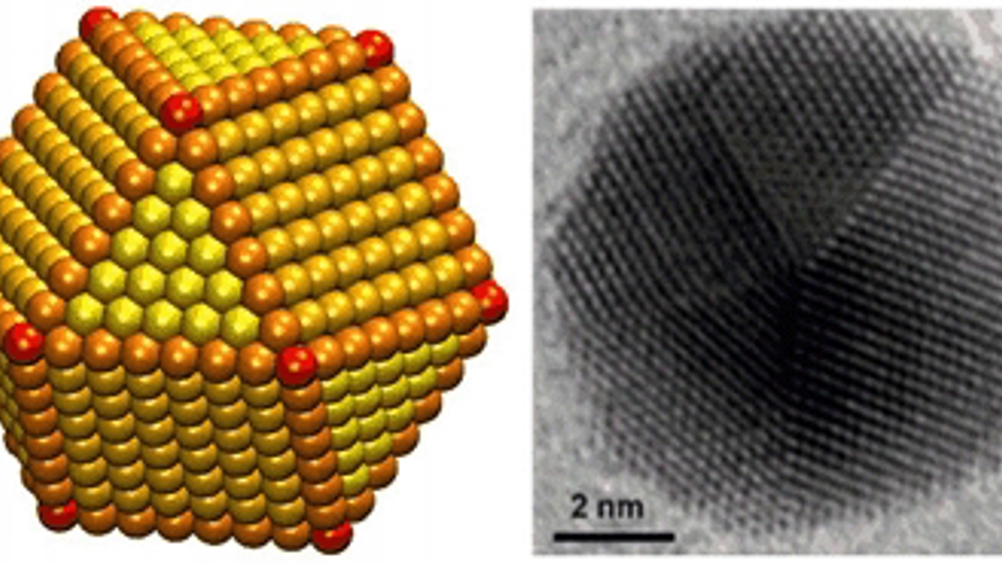Edgy gold nanoparticles help make fuels from carbon dioxide
Gold nanoparticles have been finely tuned at Brown University to create a catalyst that selectively converts carbon dioxide (CO2) to carbon monoxide (CO), which can then be used to make alternative fuels.

‘Our study shows potential of carefully designed gold nanoparticles to recycle CO2 into useful forms of carbon,’ said Shouheng Sun, professor of chemistry and one of the study’s senior authors. ‘The work we’ve done here is preliminary, but we think there’s great potential for this technology to be scaled up for commercial applications.’
The findings are published in the Journal of the American Chemical Society.
CO2 is a stable molecule that must be reduced to an active form like CO to make it useful for creating synthetic natural gas, methanol, and other alternative fuels.
Prior research has shown that catalysts made of gold foil are active for this conversion, but they aren’t efficient. The gold tends to react with the CO2 and with the water in which the CO2 is dissolved, creating hydrogen byproduct rather than CO.
The Brown experimental group, led by Sun and Wenlei Zhu, a graduate student in Sun’s group, wanted to see if shrinking the gold down to nanoparticles might make it more selective for CO2.
Register now to continue reading
Thanks for visiting The Engineer. You’ve now reached your monthly limit of news stories. Register for free to unlock unlimited access to all of our news coverage, as well as premium content including opinion, in-depth features and special reports.
Benefits of registering
-
In-depth insights and coverage of key emerging trends
-
Unrestricted access to special reports throughout the year
-
Daily technology news delivered straight to your inbox










Water Sector Talent Exodus Could Cripple The Sector
Maybe if things are essential for the running of a country and we want to pay a fair price we should be running these utilities on a not for profit...